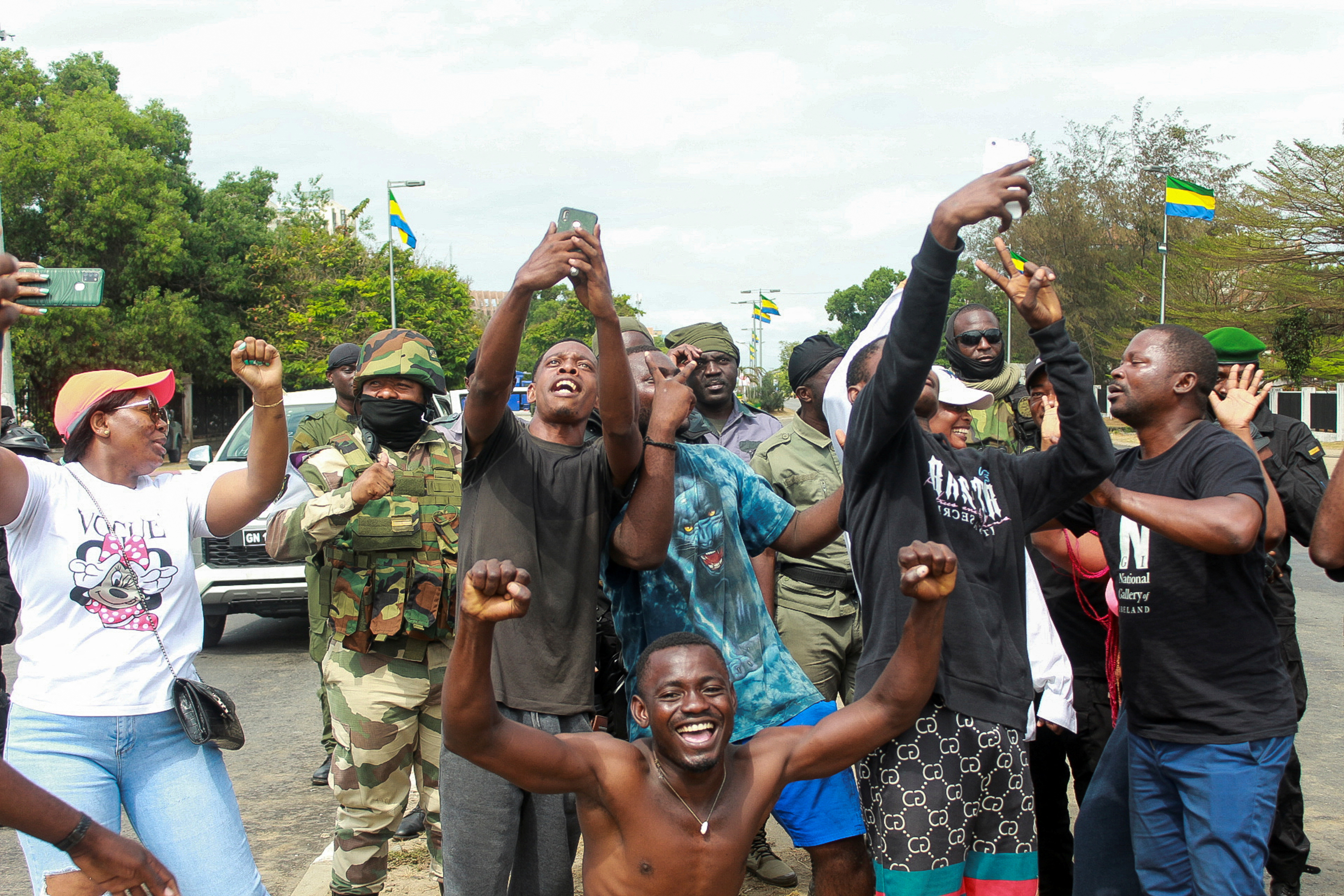The African Union on Thursday suspended Gabon’s membership one day after military officers ousted President Ali Bongo, the first regional response to the eighth coup in West and Central Africa since 2020.
The takeover ends the Bongo family dynasty’s almost six decades in power and creates a new conundrum for a region hit with a wave of coups that Nigerian President Bola Tinubu called a “contagion of autocracy”.
Like other juntas who have snatched power in the region, Gabon’s military leaders are seeking to consolidate power despite international condemnation.
General Brice Oligui Nguema, the coup leader and former head of the presidential guard, is due to be sworn in as president on Monday.
“My fear has been confirmed in Gabon that copy cats will start doing the same thing until it is stopped,” Tinubu, who chairs West Africa’s main regional body ECOWAS, said on Thursday.
The African Union’s Peace and Security Council made a first move on Thursday by barring Gabon’s participation in all its activities, organs and institutions until constitutional order is restored.
Central Africa’s political bloc, of which Gabon is a member, also condemned the coup in a statement and said it planned an “imminent” meeting of heads of state to determine how to respond. It did not give a date.
Senior officers in Gabon announced their coup before dawn on Wednesday, shortly after an election body declared that Bongo had comfortably won a third term in Saturday’s vote. The junta declared the vote null and void, dissolved state institutions and closed borders.
Later on Wednesday, a video emerged of Bongo detained in his residence, asking international allies for help but apparently unaware of what was happening around him.
Gabon’s main opposition platform, Alternance 2023, thanked the junta on Thursday for ending the Bongos’ long grip on power.
But representative Mike Jocktane added that the coup leaders should finish what he said was an incomplete vote count. A full tally would show that the main opposition candidate, Albert Ondo Ossa, had won, he said.
In official results announced on Wednesday, Ondo Ossa came a distant second to Bongo.
Jocktane said the opposition was willing to hold talks with the junta “to avoid a future for our country even darker than the one we have been spared”.
BORDERS CLOSED
In a statement on Thursday, the junta said it had resumed domestic flights and restored some state institutions, including the Constitutional Court.
But land and air borders remain shut.
On Thursday, trucks, cars and motorbikes were stuck in long queues at Gabon’s border with southern Cameroon, a Reuters reporter said. At a crossing at Kye-Ossi some hung lines of laundry in between vehicles as they waited.
“Life is a bit tough in our trucks, we sleep outside,” said Issa Soumaila, a driver from Chad, standing beside trucks piled high with planks of wood.
The events in Gabon follow recent coups in Mali, Guinea, Burkina Faso, Chad and Niger, erasing democratic gains since the 1990s and raising concerns among foreign powers with regional strategic interests. The coups also showed the limited leverage of African powers once the military takes over.
ECOWAS threatened military intervention in Niger after a coup there on July 26 and imposed sanctions, but the junta has not backed down. Military leaders elsewhere have also resisted international pressure to restore civilian rule. They have managed to hold on to power and some have even gained popular support.
Hundreds of people took to the streets of the capital Libreville to celebrate Wednesday’s coup in Gabon. The city was calmer on Thursday as people returned to work, although the main intersections and thoroughfares were guarded by security forces.
Bongo’s popularity had worn thin amid claims of corruption, sham elections and a failure to spend more of Gabon’s oil and mineral wealth on the country’s poor. He took over in 2009 on the death of his father Omar, who had ruled since 1967.
France, the United States, Canada and Britain have all expressed concern about the coup. But they have not made direct calls for reinstating Bongo.
The European Union’s foreign policy chief, Josep Borrell, said the election had been full of irregularities, adding that the EU rejected the seizure of power by force.
A lack of international observers, the suspension of some foreign broadcasts, and the authorities’ decision to cut internet service and impose a night curfew after the election raised concerns about the transparency of the vote.







Click here to change your cookie preferences